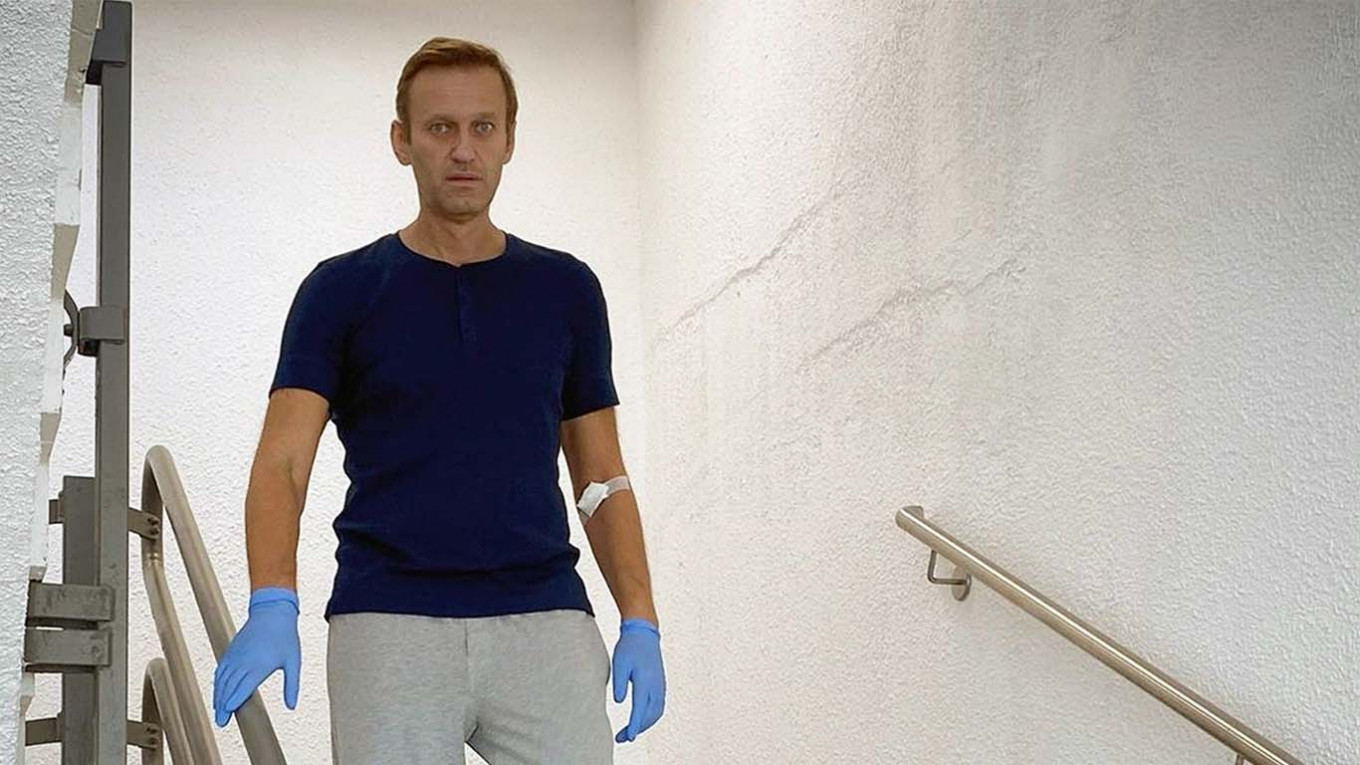Jailed Kremlin critic Alexei Navalny said Thursday that prison administrators have threatened to start force-feeding him immediately due to his deteriorating health.
The 44-year-old poisoning survivor went on hunger strike over two weeks ago to demand a civilian doctor treat his severe back pain and leg numbness. He is serving two and a half years in a notorious prison colony on charges of violating parole of his old suspended sentence for fraud.
Citing a female colonel, Navalny wrote on Instagram that his blood test “indicates a serious deterioration in health and risk.”
“If you don’t give up the hunger strike, then we are ready to switch to force-feeding now,” he quoted the unnamed prison administrator as saying to him.
The Kremlin critic said he acknowledged his worsening physical condition but declined to be force-fed, maintaining his demand for an outside doctor.
“My head is very dizzy but I’m still walking because I feel your support,” Navalny, who accuses the Kremlin of a poisoning attack for which he spent months recovering abroad, wrote.
Navalny said he believes prison administrators are disregarding his demands because “they’re afraid it will turn out that the loss of sensation in my limbs could be linked with the poisoning.”
Navalny’s wife said this week that he “speaks with difficulty” and has lost significant amounts of weight (from 93 kilograms when first jailed in February to 85 kilograms at the start of the hunger strike to 76 kilograms as of Tuesday).
Toxicologists have said that Navalny’s reported loss of sensation in his legs is consistent with symptoms of military-grade chemical agent poisoning.
Navalny's weight loss before the start of his hunger strike could also have been related to nerve-agent poisoning, toxicologists said.
His lawyers have said a March 24 MRI scan showed that he has two herniated spinal disks and a bulging disk, which could be the cause of his back pain and loss of limb sensation.
During his recovery in Berlin, European experts and the global chemical weapons watchdog determined that Navalny was poisoned with Novichok, a Soviet-designed, military-grade nerve agent, in August 2020.
A Message from The Moscow Times:
Dear readers,
We are facing unprecedented challenges. Russia's Prosecutor General's Office has designated The Moscow Times as an "undesirable" organization, criminalizing our work and putting our staff at risk of prosecution. This follows our earlier unjust labeling as a "foreign agent."
These actions are direct attempts to silence independent journalism in Russia. The authorities claim our work "discredits the decisions of the Russian leadership." We see things differently: we strive to provide accurate, unbiased reporting on Russia.
We, the journalists of The Moscow Times, refuse to be silenced. But to continue our work, we need your help.
Your support, no matter how small, makes a world of difference. If you can, please support us monthly starting from just $2. It's quick to set up, and every contribution makes a significant impact.
By supporting The Moscow Times, you're defending open, independent journalism in the face of repression. Thank you for standing with us.
Remind me later.






